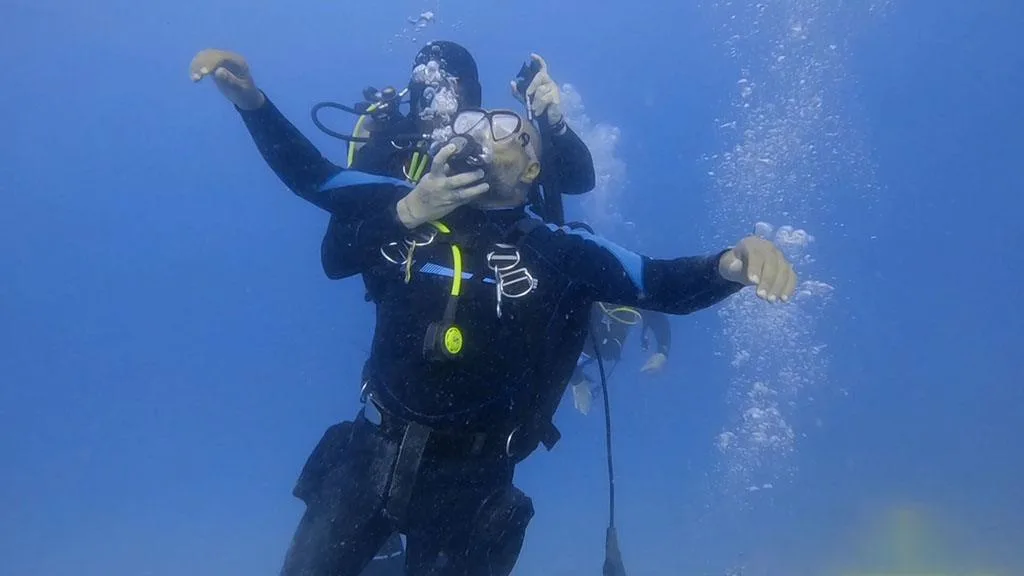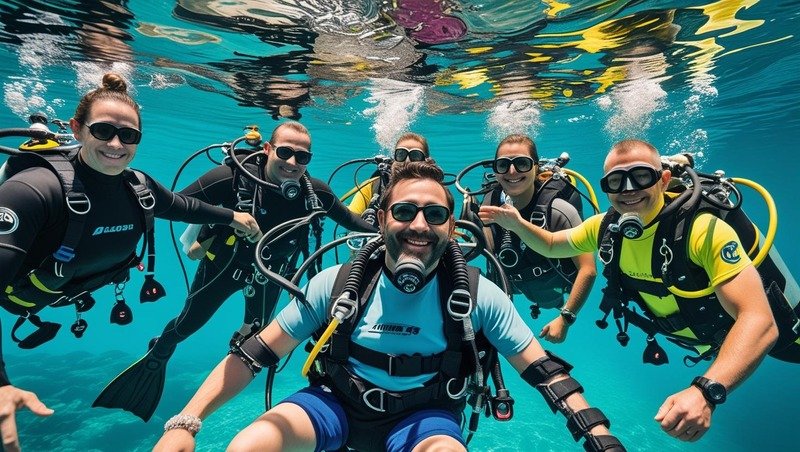Top 7 Mistakes New Divers Make

Top 7 Mistakes New Divers Make in Their First 20 Dives (and How to Avoid Them)
The first 20 dives are where most divers form habits—good or bad. Mistakes are part of learning, but being aware of them early on can save you stress, air, and even prevent accidents. Here are seven common mistakes beginners make, and how to avoid them.
- Poor Buoyancy Control
Many beginners struggle with floating up and down uncontrollably.
👉 Fix: Practice hovering in shallow water. Use slow, controlled breaths and small adjustments on your BCD.
- Overweighting
Adding too much lead makes diving harder and increases air consumption.
👉 Fix: Do a proper buoyancy check before each dive with a nearly empty tank.
- Rapid Breathing and Air Hunger
Nervous divers tend to breathe fast, leading to shorter dives.
👉 Fix: Slow down, inhale deeply, and exhale fully. Relaxation is key.
- Skipping the Buddy Check
Many accidents happen simply because a pre-dive check wasn’t done.
👉 Fix: Always use the “ABCDE” system (AIR , BCD, Computer , Diving Gear , Air, Enter ).
- Kicking Too Hard
Over-kicking stirs up silt, scares fish, and drains energy.
👉 Fix: Use long, slow fin strokes. Think efficiency, not speed.
- Ignoring the Dive Computer
Some beginners forget to look at their depth, NDL, or air supply until it’s too late.
👉 Fix: Check your gauges and computer every few minutes.
- Forgetting the Fun
Beginners often focus too much on technique and forget to look around.
👉 Fix: Once you’re comfortable, slow down, look at the reef, and enjoy the moment.
Conclusion
Mistakes are normal, but awareness turns them into lessons. Focus on buoyancy, air management, and teamwork, and you’ll quickly move from “new diver” to confident underwater explorer. Remember: every dive is an opportunity to improve and enjoy.











